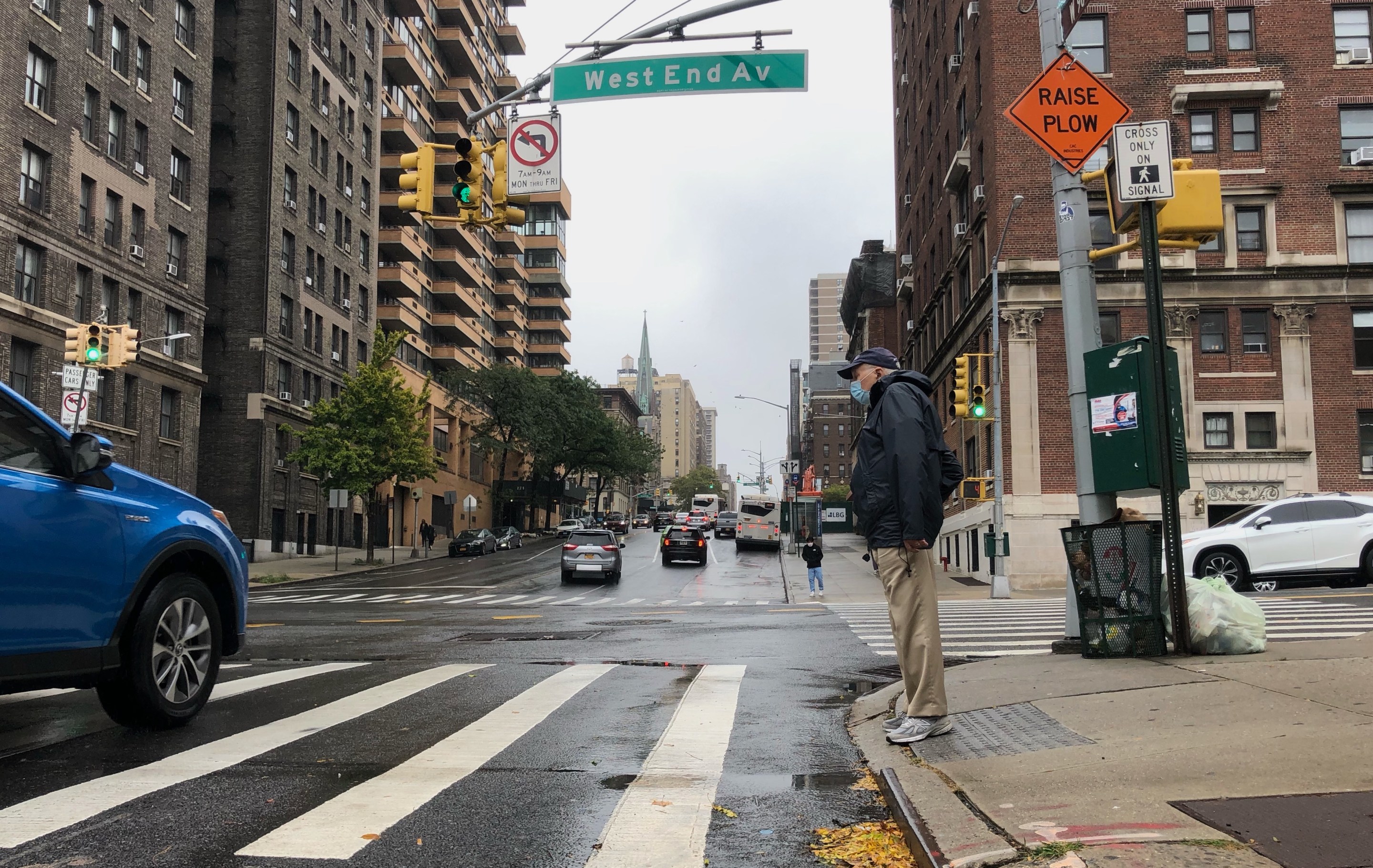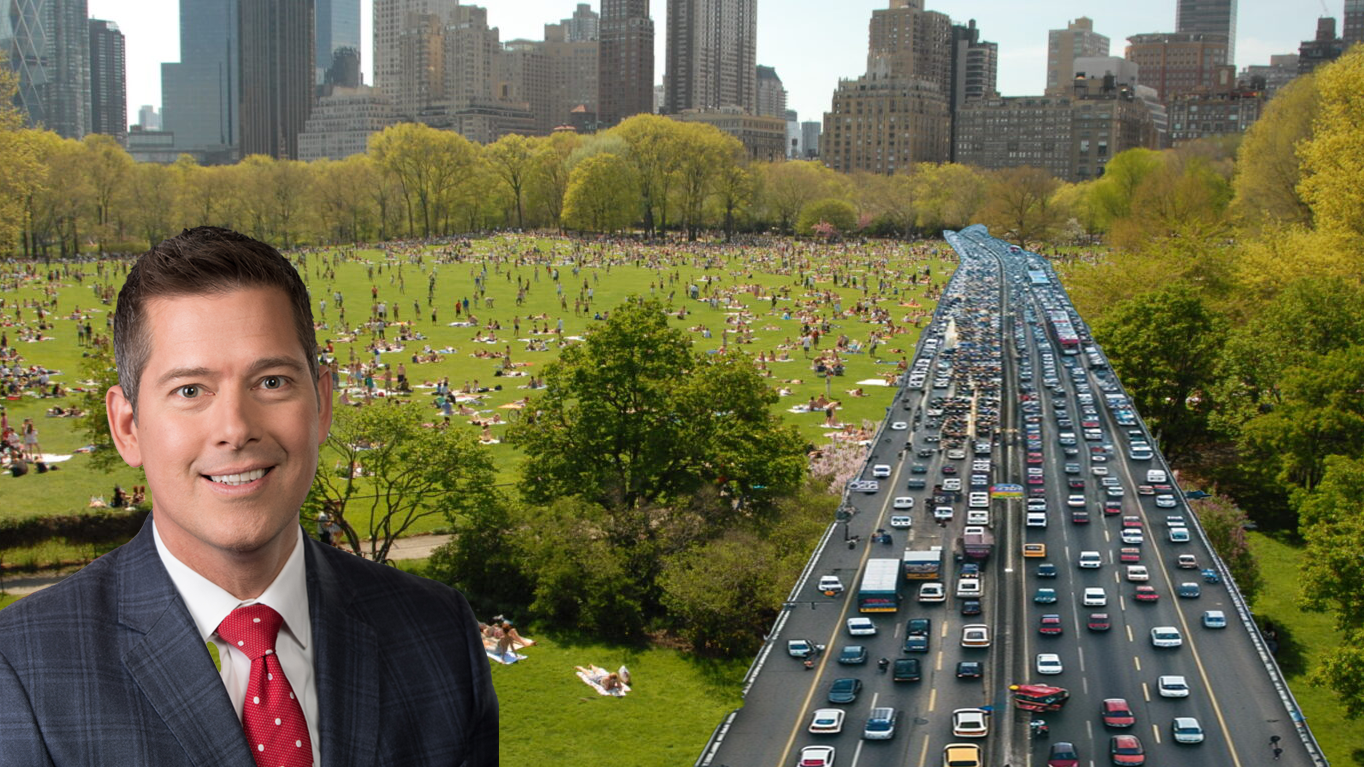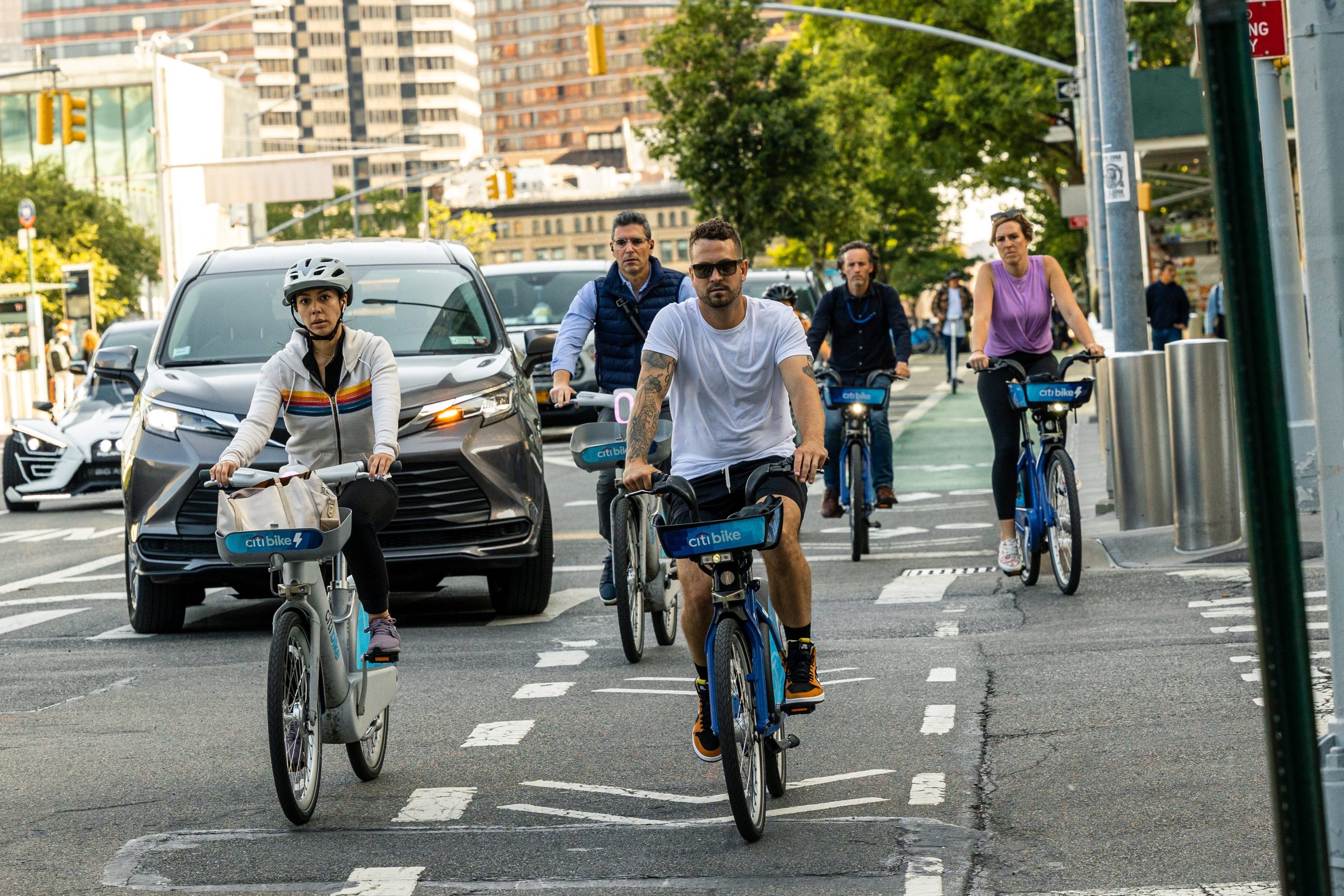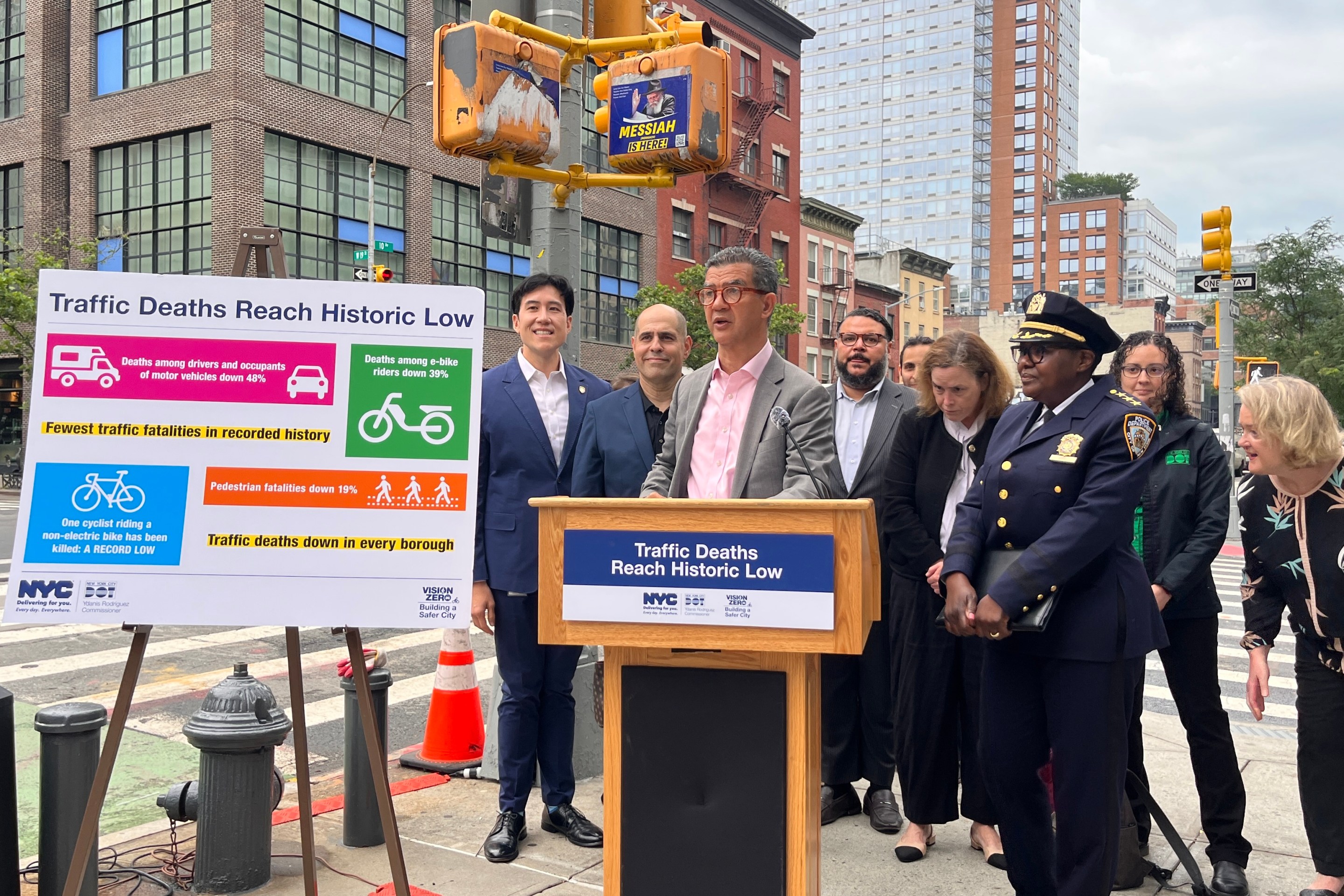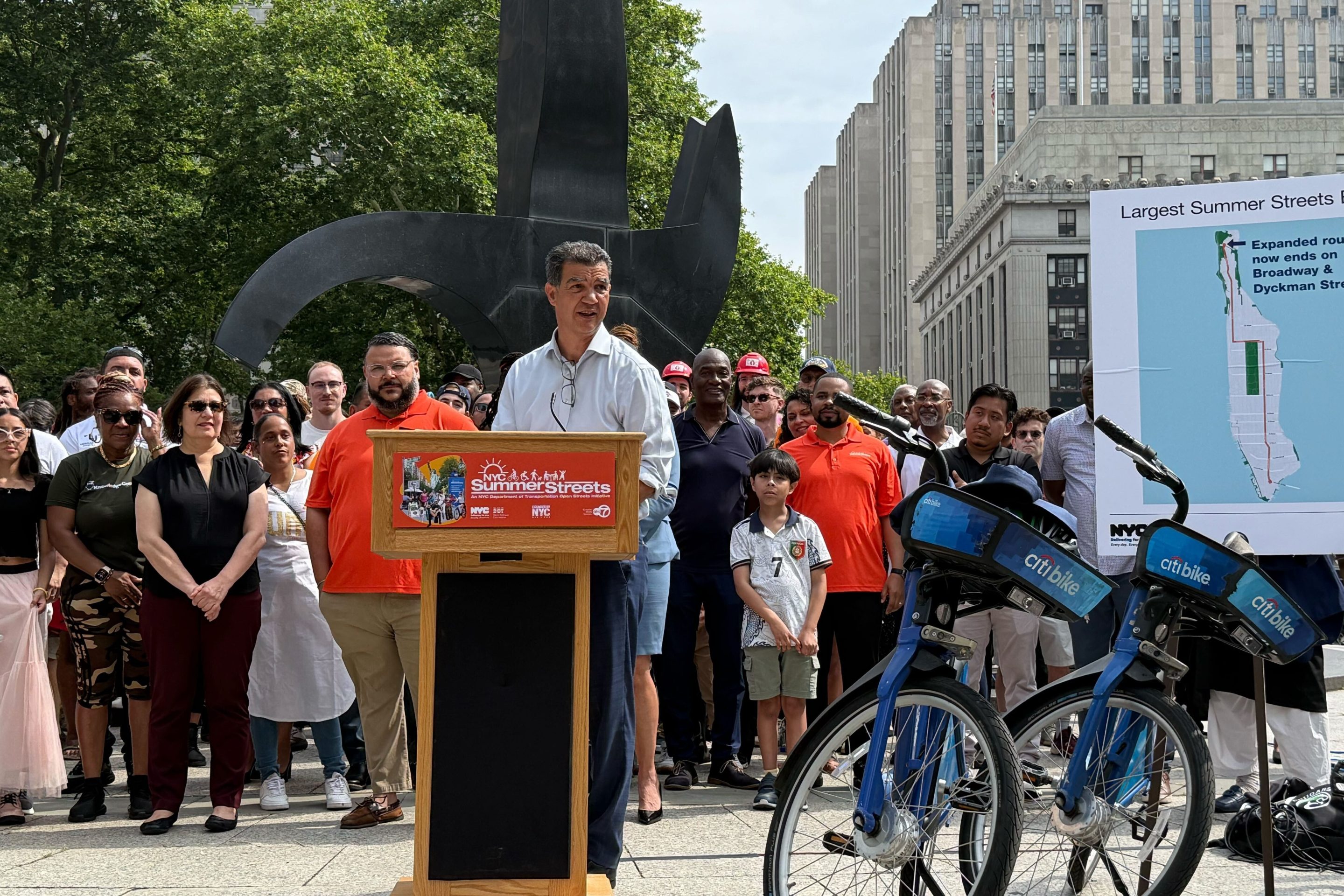Another Manhattan neighborhood is calling for an end to the city rules that slow down — and make less equitable — the installation of crucial street-safety infrastructure.
Community Board 7, representing the Upper West Side, voted last week to ask the Department of Transportation to immediately install a curb extension at 96th Street and West End Avenue — and to eliminate a requirement that such basic infrastructure needs a "community partner" to accept legal liability for the new feature. The requirement for insurance and a maintenance partner is often an impossibly heavy lift for neighborhoods that lack groups, such as business improvement districts, that can take up the responsibilities.
“I am greatly troubled that the city is unwilling to make changes to the street which are proven to save lives unless a community partner steps up who is willing and able to provide maintenance and insurance,” said Howard Yaruss, the co-chairman of CB7’s transportation committee. “I expect the city to make these life-saving changes in all communities and not just in places with the good fortune to have an eligible partner. I also question why the city promotes unsafe conditions by requiring insurance for safe conditions, but not for unsafe ones?”
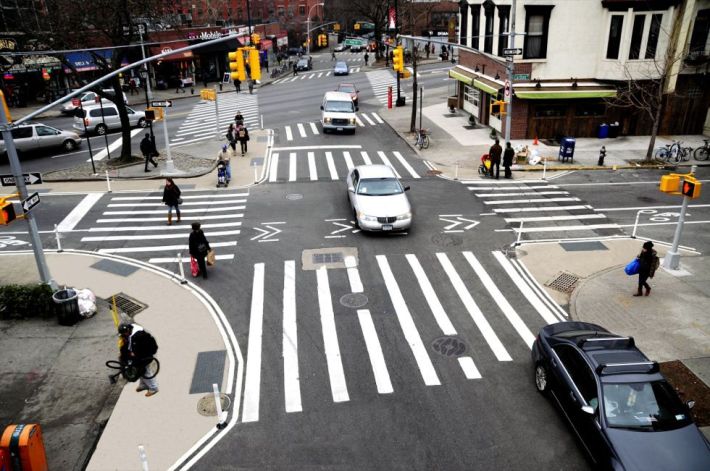
The same insurance and liability requirement also explains the massive failure of the city's bike corral program, which managed to install all of four corrals in 2019 and 2020 because of DOT's insistence that it needs a neighborhood partner to create bike parking (though no such requirement exists when DOT creates car parking).
The CB7 resolution demanded that the DOT “change the requirement of a maintenance partner and insurance” for the amenity — a demand that follows a similar ask from Community Board 4, representing the far West Side from Midtown to Chelsea, which in August asked demanded that the DOT drop the requirement for insurance and a maintenance partner for neckdowns citywide.
The policy “contributes to avoidable pedestrian deaths and injuries,” the board's letter to DOT stated.
Curb extensions — also known as “neckdowns” — have emerged as a rally cry among Manhattan street-safety activists who don't understand the slow pace of the DOT on such infrastructure, which disadvantages poorer neighborhoods. Neckdowns use concrete, sometimes protected by planters, paint or flexible bollards, to extend curbs either at intersections or midblock. They promote safety by reducing crossing distances, relieving sidewalk crowding, slowing down turning vehicles and narrowing roads in order to provide more room for pedestrians.
“We want these features to be installed very easily everywhere,” CB4 member Christine Berthet said when her board raised the issue.

The corner of 96th Street and West End Avenue has been a focus of community-safety effort for a decade. The largely residential area is home to many children and seniors and is oppressed by often high-speed car traffic from the Central Park 96th Street Transverse and 96th Street exits off the Henry Hudson Parkway. Car drivers killed at least three pedestrians, including 9-year-old Cooper Stock, in the area in 2014 alone. The southwest corner sits in front of Public School 75, the Emily Dickinson School.
The DOT has made improvements to the street, including turn lanes, but death still stalks the area. In 2019, beloved pediatrician Dr. Daniel Cammerman was mowed down by a school-bus driver in the 96th Street Transverse. And doorman Alfred Pocari, 64, was killed by a driver with two earlier unlicensed driving convictions.
“Life-saving street treatments shouldn't require a maintenance partner,” said Lisa Orman, the director of Streetopia Upper West Side. “It's pedestrian discrimination to suggest otherwise. To require liability insurance is actually insane. This essentially precludes many neighborhoods in the city from benefiting from something as simple — yet life-saving — as a curb extension. The DOT should be redesigning the 10 most dangerous intersections in every community board with its toolkit. Instead, the agency looks for ways to burden neighborhoods and prevent pedestrians from walking with peace and safety. This has to stop!"
The CB7 resolution comes as a state watchdog is criticizing the DOT for slow and incomplete fixes of intersections. State Comptroller Thomas DiNapoli faulted the agency for traffic studies that took too long, broken traffic cameras, and undone improvements in an audit examining its last four years of operations.
It also comes as a civic group, CityRise, is campaigning to offload some DOT functions to neighborhood and non-profit groups. The group argues that COVID-strapped budgets and the mayor’s singular focus on the pandemic should not come at the expense of a surface-transportation recovery plan. (Full disclosure: The boards of City Rise and Streetsblog share some members.)
CB7 earlier this year famously voted to ask the DOT to study using its curbs for public purposes other than parking.
The DOT said in August that it was reviewing the proposal to loosen the neckdown rules.
